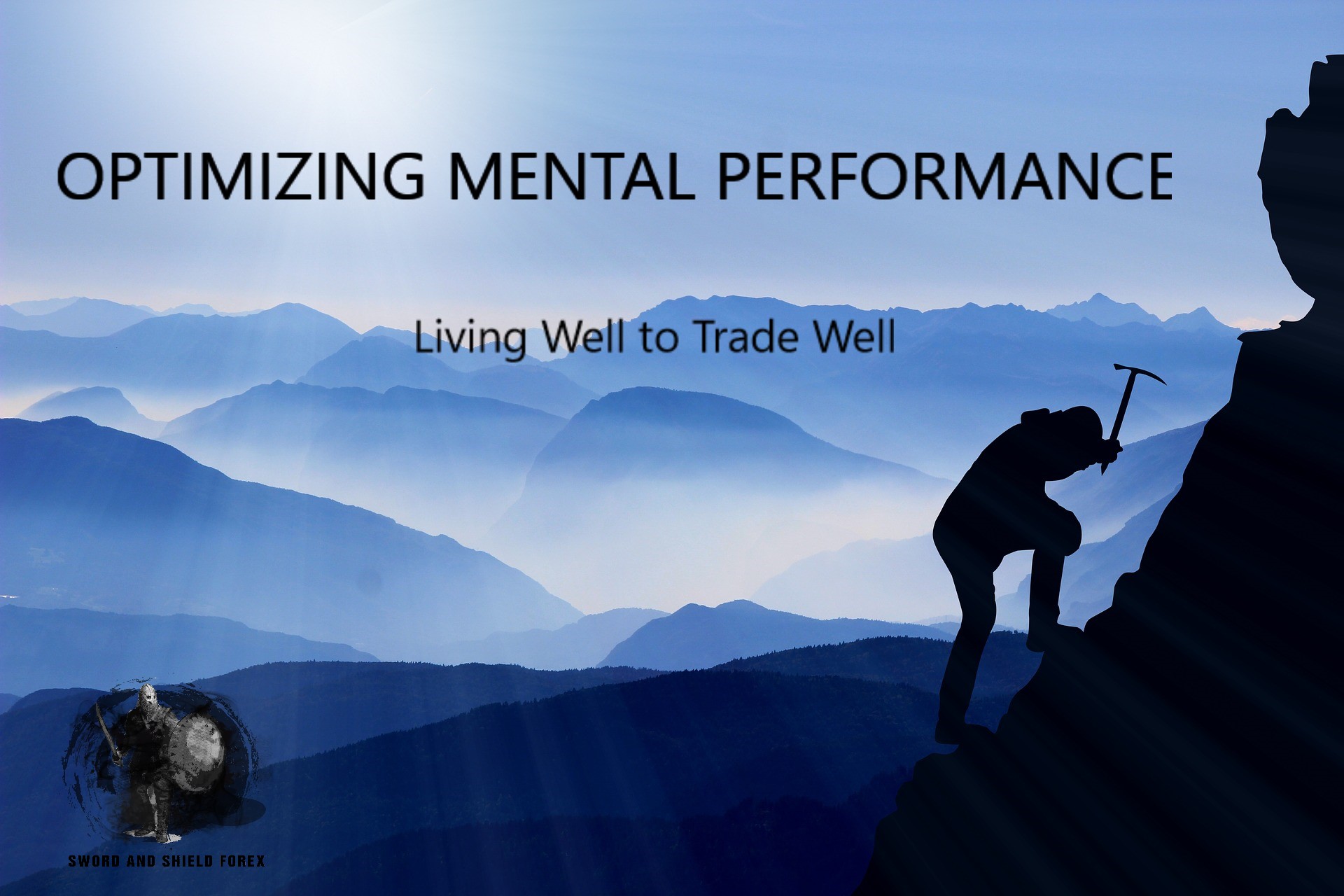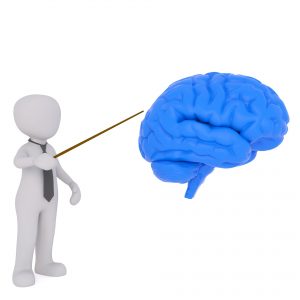
“
Trading – A Unique Beast
Trading is an exceptionally challenging and unique profession. Part of what I love about trading is that the correlation between personal psychology and performance is arguably one the highest amongst any profession. Unfortunately, although many traders have been exposed to this concept or know it intuitively, few take the time to actively develop this aspect of their skill set.
The link between performance and health is clear and makes intuitive sense. If one has a healthy and resilient mindset, they are able to better perform their tasks. This is true for any profession, but trading is truly a unique beast, and without the proper mindset one will quickly find themselves underwater.
This is a rather lengthy post but I hope to be a worthwhile read for both seasoned traders and beginners. I touch upon:
- What makes trading so difficult
- The prime driver of market behavior
- Price action patterns that reveal market participants emotional state and strategies to exploit it
- The pitfalls from not mastering our emotions
- Why golf can be an integral part of enhancing our trading performance
- and more….
Why is trading so difficult?
Traders face a number of unique and challenging psychological obstacles.
- The decisions traders must make are high stakes and high intensity. They typically involve large amounts of money and often need to be made in a rapid, responsive manner as new information arises.
- Trading decisions are made in an exceptionally competitive zero-sum game, where the competition can be better equipped with more resources, information, or other market advantages.
- Independent traders are often working in isolation, trading their own unique strategies and beliefs. Although executing their strategies independently, they are constantly exposed to a plethora of “outsiders” opinions on the accuracy of their own market position.
- The market is largely driven by the emotional states of market participants. These can create enticing price movements which appeal to our own emotional states, presenting significant discipline challenges (more later)
Taken together, these obstacles are psychologically taxing and the crux of many traders – at all levels of experience. They require constant work and dedication to master but also provide ample opportunities to gain an edge over other market participants.
Market Behavior

You’ve probably heard the expression that the market is driven by two forces – fear and greed. “Greed” has been criticised by some as not being the most appropriate term, some even argue that it is not an emotion at all. Semantics aside, both cases might be best explained by the primitive and powerful FEAR emotion as the primary driver. Market participants panicking and closing positions when price is moving against them as they have a “fear of losing” or loss aversion. Or on the other hand, market participants irrationally opening positions as they have a fear of missing out (greed).
The evidence for the presence of these emotional drivers is clearly detectable in Price Action. For example, large volatility spikes are hallmark indicators of fear/greed and can be detected on all timeframes. These emotional states can be more sustained and concerted as well, adopted by a large number of market participants resulting in a parabolic price movement that can last for hours, days or longer.
Similarly, the absence of emotional drivers can also be detected in price action. For example, channel, pennant or flag patterns can suggest calamity, certainty and confidence by market participants.
Markets are traded by humans and are therefore subject to our collective behavioral intricacies. We can “see it” in the price action, and good traders know that there are excellent opportunities by recognizing it and rising above the herd’s emotional state. Enter Warren Buffet:
“Be Fearful When Others Are Greedy and Greedy When Others Are Fearful”
Opportunity to Develop an Edge
 The interesting aspect of emotionally fueled moves is that they are fueled by a feedback loop. As more participants adopt and act on the driving emotion, the more price will move. These can result in drastic price movements which further influences the emotional state other market participants – they act on that emotion – pushing price even further, and so on.
The interesting aspect of emotionally fueled moves is that they are fueled by a feedback loop. As more participants adopt and act on the driving emotion, the more price will move. These can result in drastic price movements which further influences the emotional state other market participants – they act on that emotion – pushing price even further, and so on.
The issue however, as Mr Buffet points out, is that although the move may have had a significant catalyst, the emotional feedback loop drives price beyond reasonable valuations. The price movement no longer has fundamental legs. Alan Greenspan famously coined this phenomena “irrational exuberance”.
These emotionally driven movements are enticing and many quickly enter a position as they fear missing out on the opportunity. This is typically referred to as “chasing price” and can be quite problematic. As the emotional fuel dries up, many traders realize price has gone too far too quick and exit their positions. Some traders may get out before a stop cascade creates a volatile retracement or in extreme circumstances a market crash.
We can improve our own discipline and gain control over our own emotions and learn to recognize these phenomena to exploit them.
Recognizing the Emotional State of the Markets.
By recognizing these emotionally driven market patterns one can gain an edge. An obvious approach is to avoid moves that are emotionally driven and learn to trade in markets with more predictable behavior. Markets with price action that suggests a calamity and confidence of market participants (as described earlier) increases the probability of technical levels being respected.
On the other hand, any number of strategies can be designed around emotionally driven volatile movements, particularly looking for the retracement of price after a significant emotionally driven move.
A great example of a trader who understands the benefits of reading and exploiting emotionally fueled price action comes from George Soros. He suggests watching for an increase in short term volatility at potential tops or bottoms. This volatility is resultant of traders that have an increased fear of holding onto their positions – they have less confidence in the market direction and close positions more readily.
Importance of controlling our own emotions

Beyond learning to recognize emotionally fueled trading and applying strategies to exploit it, we can also gain an edge by mastering our own emotions. As described above, emotional trading can result in chasing price and entering a position that is not fueled by fundamentals which have a high probability of volatile retracements; yet, not effectively controlling our own emotions can lead to plenty of other poor trading habits including:
- Over trading
- Revenge Trading
- Take profits too early
- Letting losers run
- Moving Stop Losses
- And in general, not trading your plan with confidence and discipline
Developing the Shield

The ability to gain control over our own emotions and recognize its presence in market activity is a good example of a psychological edge that can be developed through proper training and habits.
Yet we’ve also established that trading is an exceptionally difficult pursuit and that traders need to make high-stakes decisions in an emotionally driven landscape. This not only requires the development of a trading skillset but the optimization our mental performance to combat all the challenges traders face.
Actively developing our mental fortitude will not only allow us to cope in this environment but allows for the potential to thrive as a trader. Trading is often described as 80% psychological and for good reason. Sadly, few take the time to dig deep into developing this skillset and most probably aren’t even aware of the degree to which it may be sabotaging their potential for success.
For these reasons, this site was named to recognize the importance of both trading skills (Sword) and mental performance (Shield). Although there are some excellent resources on the internet, most often “Shield” topics are excluded from discussions or lack depth.
I hope to not regurgitate the same psychological trading articles but dig deeper by giving practical information on improving mental performance. The scope of Shield topics is all encompassing extending beyond emotional control to include other psychological topics such as: cognitive biases (detection and mitigation strategies), Confidence, discipline, mental toughness/resilience, optimising focus and trading in flow states, coping with stress and more. As such, blog posts include information on general health, diet and nutrition, fitness and active lifestyles. The potential for diet, supplements, and exercise to enhance performance are well documented including:
- Prevention and management of stress
- Increase your focus (see attentional control)
- Increase your discipline (see Inhibitory control)
- Feel better Rested by Increasing your quality of sleep
- Increase your informational processing abilities (see Mental chronometry)
- Increase Neuronal Growth and Overall Cognition
- Improve your mood
- Improve your general health and fitness to be able to continue to PLAY and ENJOY LIFE
Yeah yeah, I’ve Heard it Before!
I know that many who read this article will quickly dismiss it as just another psychology article not requiring any actionable follow up. Sadly, most traders never give the topic the attention it deserves. We can be sure of this because of the dominance of emotional trading which is observable in price action.
One can only speculate on why many fail in this aspect of trading. Perhaps some suffer from overconfidence effect and don’t feel they need to put in the effort. Perhaps some are unaware of the degree to which their psychology may be impacting their performance. Or maybe some feel that it simply isn’t important.
Yet even if one takes their trading psychology seriously, without the full “Shield” package they still might not be operating at their full potential. Take a chapter from my book for example. During this time I appreciated the importance of my psychology on my trading. I was also eating well and working out. I was journaling to detect my emotional states during trades. I developed quantitative decision models to eliminate any of my biases in evaluating trade setups. I was even wearing a heart rate monitor to track my physiology during different trading events! However, despite my efforts I began to notice that my overall mindset was not optimized.
I began showing signs of stress. My sleep patterns became irregular. I became irritable and was less focused. My creativity dried up and I was struggling with problem solving – an area I excel at. In short, I was overworking and didn’t have the necessary balance in my life to optimize my psychological performance.
The Beauty of the Sword AND Shield
 My experience with overworking (which admittedly I’m guilty of on several occasions) had led me to make some changes. Although I continued to work very hard, I made sure to schedule more time for hobbies and “play”. The results were almost immediately apparent. I am a strong believer that by including more of these activities mental performance will increase and productivity will actually increase as well!
My experience with overworking (which admittedly I’m guilty of on several occasions) had led me to make some changes. Although I continued to work very hard, I made sure to schedule more time for hobbies and “play”. The results were almost immediately apparent. I am a strong believer that by including more of these activities mental performance will increase and productivity will actually increase as well!
So if the market isn’t moving don’t be afraid to go climb a mountain, swing some golf clubs around or do whatever else it is that provides some balance in your life. These activities help develop your “Shield” and are an integral part of this profession – and to life in general.
Sure there are other professions that require exceptional mental performance as well. Surgeons, professional athletes, etc… Trading certainly ticks all the boxes of a profession where not mastering yourself can ruin a trader. This understanding is motivation to actively work on my trading psychology, to eat well, to stay fit and release stress through various enjoyable external activities. In other words, by necessity, trading well means living well – which is challenge I’m happy to take on. Build your Shield!


